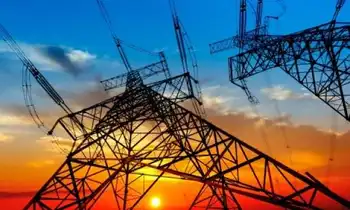Higher energy bills anticipated for Albertans
- Direct Energy, which is in the midst of buying ATCO Group's electricity and natural gas businesses, hopes to be on Alberta doorsteps as early as January, its president said recently.
But the company's arrival will come at a cost to many Alberta consumers in the form of higher bills.
Paul Massara, head of Canadian operations for Direct Energy said the $128-million ATCO deal will likely close in the first quarter, but the company is hoping to wrap up the transaction as early as January.
"We're looking forward to closing that transaction I guess early in the new year now and being in the market as soon as possible," Massara said in an interview.
Direct Energy reached an agreement a year ago with ATCO to buy close to one million natural gas and electricity customers in Alberta.
The deal relied on several conditions being approved by regulators, including rate applications that would see bills increase for Albertans.
The Alberta Energy and Utilities Board approved those applications this week, permitting extra charges totalling more than $86 a year on gas and electricity bills.
But Direct had applied for a higher rate. As a result, both companies said the deal is far from closing.
"At this time, there is no assurance that all conditions to closing will be satisfied," said Sigfried Kiefer, director of technologies for the ATCO Group.
Direct Energy applied to add charges of $60.12 a year to gas bills and $56.40 a year to electricity bills.
The extra charges are required to cover expenses associated with the business, including buying and storing natural gas and billing consumers, the company argued.
In its ruling, the EUB said Direct Energy could collect an additional $40.68 a year on gas bills and $45.72 on electric bills.
The difference could threaten to change some of the terms of the deal.
"We need to go back and assess the financial impact . . . on how we operate and what we do," said Massara.
The extra charges, which equal more than $7 a month on bills, have angered critics.
"It's clear that under the government's vision for deregulation, utility companies are the winners and consumers are the losers," said Alberta Liberal Energy critic Hugh McDonald.
Consumer advocate Jim Wachowich said the extra charges not only add costs, but complicate the bills.
"It's making the average Albertan's life more complex and more costly," said Wachowich.
"And it wasn't something that they asked for."
The Alberta government opened the electricity market to competition two years ago, allowing companies like Direct Energy to compete for customers with utilities like Enmax and Epcor.
Direct Energy, owned by British utility giant Centrica PLC, wants to build its business by signing month-to-month consumers to long-term energy contracts at set prices.
To do that, the company will sell door-to-door and through mailouts to the natural gas customers it will pick up.
If the deal goes through, Direct Energy will be the supplier of natural gas to ATCO's 800,000 customers in Alberta and its 175,000 electricity customers.
ATCO will retain ownership of the wires and pipes used to ship energy to homes, but will not be the seller of the gas or electricity. Both companies will be listed on bills.
Critics have raised concerns about Direct Energy's track record in other jurisdictions, where the company has been sanctioned for signing people to contracts without their permission.
Direct Energy was fined $157,500 in Ontario this summer after 21 customer signatures were determined to have been forged on contracts by door-to-door agents.
The company's U.S. affiliate, Energy America, has faced sanctions in Michigan, Georgia and New Jersey over questionable marketing practices.
A unit of the firm is also under investigation in Texas for switching customers without their permission -- a process known as slamming.
Massara said no decision has been reached yet in the Texas case.
Related News

Are Norwegian energy firms ‘best in class’ for environmental management?
OSLO - By Tom Baxter
The recent Energy Voice article from the Equinor chairman concerning the Mariner project heralding a ‘significant point of reference’ for growth highlighted the energy efficiency achievements associated with the platform.
I view energy efficiency as a key enabler to net zero and it is a topic I have been involved with for many years.
As part of my energy efficiency work, I investigated Norwegian practices and compared them with the UK.
There were many differences, here are three;
1. Power for offshore installations is usually supplied from gas turbines burning fuel from the oil and gas processing plant and…




